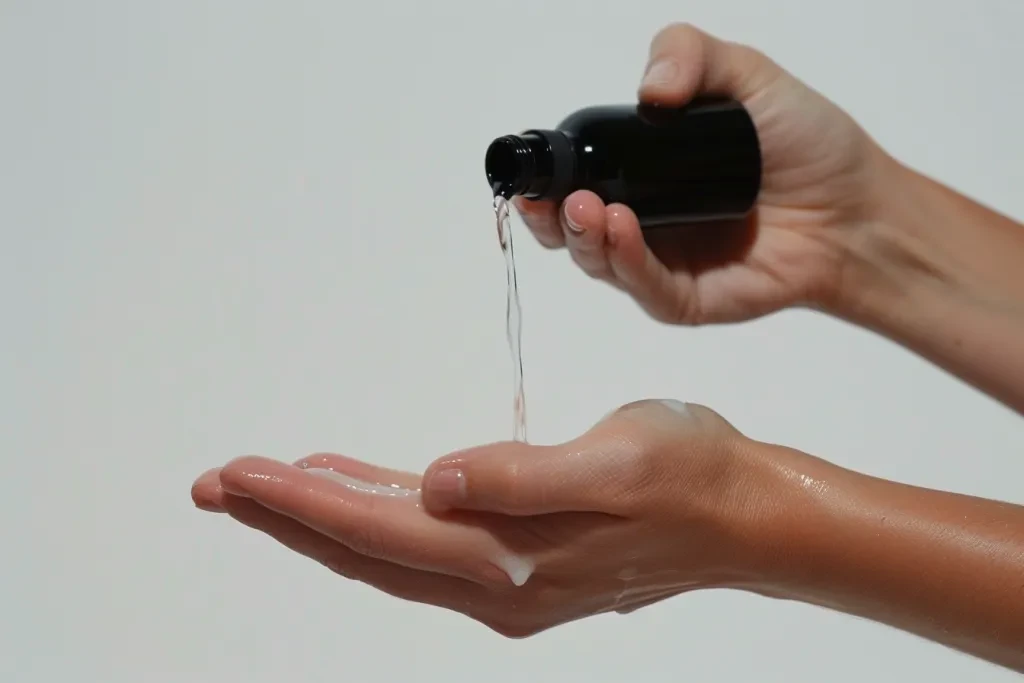Shampoo has come a long way from its humble beginnings as a simple hair cleanser. Today, it is a sophisticated product that caters to a wide range of hair care needs and preferences. The modern shampoo market is characterized by a diverse array of products, each designed to address specific hair concerns, from dryness and dandruff to color protection and volume enhancement. This evolution has been driven by changing consumer demands, advancements in technology, and a growing awareness of the importance of hair health.
Table of Contents:
– Market Overview: Understanding the Current Landscape of Shampoo Products
– The Rise of Natural and Organic Shampoos: A Shift Towards Healthier Hair Care
– Customization and Personalization: Tailoring Shampoo to Individual Needs
– Innovative Shampoo Formats: Beyond the Traditional Liquid
– Wrapping Up: Key Takeaways from the Latest Shampoo Trends
Market Overview: Understanding the Current Landscape of Shampoo Products

Market Size and Growth
The global shampoo market has been experiencing steady growth over the past few years. According to a report by Research and Markets, the global hair shampoo market size is expected to reach $38.7 billion by 2027, growing at a compound annual growth rate (CAGR) of 4.7% during the forecast period. This growth is driven by several factors, including increasing consumer awareness about hair health, rising disposable incomes, and the introduction of innovative products.
Key Market Segments
The shampoo market can be broadly segmented based on product type, price point, end user, and distribution channel. On the basis of product type, the market is divided into medicated and non-medicated shampoos. Non-medicated shampoos, which are used for regular hair care, hold the largest market share due to their widespread use. Medicated shampoos, on the other hand, are designed to treat specific scalp and hair conditions such as dandruff, psoriasis, and hair loss.
In terms of price point, the market is segmented into low, medium, and high. The medium and high segments are expected to witness significant growth due to the increasing demand for premium and specialized hair care products. The end-user segment includes men, women, and kids, with women being the largest consumer group. However, the men’s segment is also growing rapidly as more men become conscious of their grooming and hair care needs.
Distribution Channels
The distribution channels for shampoo products include hypermarkets and supermarkets, drug stores or pharmacies, mass merchandisers, departmental stores, mono-brand stores, specialty stores, and online sales channels. The online sales channel has been gaining traction, especially in the wake of the COVID-19 pandemic, which has accelerated the shift towards e-commerce. According to a report by Research and Markets, the online sales channel is expected to continue its growth trajectory, driven by the convenience and wide range of options it offers to consumers.
In conclusion, the shampoo market is evolving rapidly, with new trends and innovations shaping the landscape. From natural and organic formulations to personalized and innovative formats, the industry is responding to the diverse needs and preferences of consumers. As the market continues to grow, it presents numerous opportunities for businesses to innovate and cater to the ever-changing demands of consumers.
The Rise of Natural and Organic Shampoos: A Shift Towards Healthier Hair Care

Consumer Demand for Chemical-Free Formulations
In recent years, there has been a significant shift in consumer preferences towards natural and organic shampoos. This trend is driven by a growing awareness of the potential health risks associated with chemical-laden hair care products. Consumers are increasingly seeking out shampoos that are free from sulfates, parabens, and synthetic fragrances, which are known to cause scalp irritation and long-term health issues. According to a professional report, the global market for natural and organic personal care products is expected to reach $25.11 billion by 2025, reflecting a compound annual growth rate (CAGR) of 9.4%.
This surge in demand is not just a passing fad but a reflection of a broader movement towards healthier and more sustainable living. Consumers are becoming more educated about the ingredients in their personal care products and are making more informed choices. This trend is particularly pronounced among millennials and Gen Z, who prioritize health and wellness and are willing to pay a premium for products that align with their values.
Popular Natural Ingredients Transforming the Shampoo Market
The shift towards natural and organic shampoos has led to the rise of several key ingredients that are transforming the market. Ingredients such as argan oil, tea tree oil, and aloe vera are now commonly found in many natural shampoo formulations. Argan oil, for instance, is rich in essential fatty acids and vitamin E, which help to nourish and moisturize the hair. Tea tree oil is known for its antifungal and antibacterial properties, making it an excellent choice for those with dandruff or scalp issues. Aloe vera, on the other hand, is renowned for its soothing and hydrating properties, making it ideal for dry and damaged hair.
These ingredients not only offer numerous benefits for hair health but also appeal to consumers who are looking for more sustainable and eco-friendly options. Many natural shampoos are also packaged in recyclable or biodegradable materials, further enhancing their appeal to environmentally conscious consumers.
The Impact of Certifications and Labels on Consumer Choices
Certifications and labels play a crucial role in influencing consumer choices in the natural and organic shampoo market. Certifications such as USDA Organic, Ecocert, and COSMOS Organic provide consumers with assurance that the products they are purchasing meet stringent standards for organic and natural ingredients. These certifications also help to differentiate genuine natural and organic products from those that merely use greenwashing tactics to appear more eco-friendly than they actually are.
According to a report by a professional organization, products with organic certifications are perceived as more trustworthy and are more likely to be purchased by consumers. This trend underscores the importance of transparency and authenticity in the natural and organic shampoo market. Brands that invest in obtaining these certifications and clearly communicate their benefits to consumers are likely to gain a competitive edge in this rapidly growing market.
Customization and Personalization: Tailoring Shampoo to Individual Needs

The Growing Trend of Personalized Hair Care Solutions
The demand for personalized hair care solutions is on the rise, driven by consumers’ desire for products that cater to their unique hair types and concerns. Personalized shampoos are formulated based on individual hair profiles, which take into account factors such as hair type, scalp condition, and specific hair goals. This trend is particularly popular among millennials and Gen Z, who value customization and are willing to invest in products that offer tailored solutions.
How Technology is Enabling Custom Shampoo Formulations
Advancements in technology are playing a pivotal role in enabling the customization of shampoo formulations. AI and machine learning algorithms are being used to analyze individual hair profiles and recommend personalized shampoo formulations. Consumers can now take online quizzes or use mobile apps to input their hair data, which is then analyzed to create a customized shampoo formula. This technology-driven approach not only enhances the effectiveness of the products but also provides a more engaging and interactive experience for consumers.
Case Studies: Brands Leading the Way in Personalized Shampoo
Several brands are leading the way in the personalized shampoo market. For instance, Prose offers customized hair care products based on a detailed online consultation that assesses factors such as hair type, lifestyle, and environmental conditions. Function of Beauty is another brand that has gained popularity for its personalized hair care solutions, allowing consumers to create their own custom shampoo formulations based on their specific hair needs.
These brands are setting new standards in the hair care industry by leveraging technology to offer personalized solutions that cater to individual needs. Their success highlights the growing demand for customization and the potential for innovation in the shampoo market.
Innovative Shampoo Formats: Beyond the Traditional Liquid

The Emergence of Shampoo Bars and Their Benefits
Shampoo bars are emerging as a popular alternative to traditional liquid shampoos, offering several benefits for both consumers and the environment. These solid bars are typically made with natural ingredients and are free from plastic packaging, making them a more sustainable option. Shampoo bars are also highly concentrated, meaning they last longer than liquid shampoos and require less water to produce.
Consumers are increasingly drawn to shampoo bars for their convenience and eco-friendly attributes. They are easy to travel with, as they do not count towards liquid restrictions in carry-on luggage, and they reduce the need for single-use plastic bottles. As sustainability becomes a more pressing concern, the popularity of shampoo bars is expected to continue to grow.
Powdered Shampoos: A New Frontier in Hair Care
Powdered shampoos represent another innovative format that is gaining traction in the hair care market. These products come in a dry, powdered form and are activated with water to create a lather. Powdered shampoos offer several advantages, including a longer shelf life and reduced packaging waste. They are also lightweight and easy to transport, making them an ideal option for travelers and those with an active lifestyle.
The rise of powdered shampoos reflects a broader trend towards more sustainable and convenient hair care solutions. As consumers become more conscious of their environmental impact, products that offer both efficacy and sustainability are likely to see increased demand.
Waterless Shampoos: Convenience Meets Sustainability
Waterless shampoos are another innovative format that is gaining popularity, particularly among consumers who are looking for convenient and sustainable hair care solutions. These products come in various forms, including dry shampoos, foams, and sprays, and do not require water for application. Waterless shampoos are ideal for on-the-go use and are particularly popular among busy professionals and travelers.
The convenience and sustainability of waterless shampoos make them an attractive option for consumers who are looking to reduce their water usage and environmental footprint. As the demand for eco-friendly and convenient hair care solutions continues to grow, waterless shampoos are expected to become a staple in the hair care market.
Wrapping Up: Key Takeaways from the Latest Shampoo Trends

The shampoo market is undergoing significant transformation, driven by consumer demand for healthier, more sustainable, and personalized hair care solutions. The rise of natural and organic shampoos, the growing trend of customization, and the emergence of innovative formats such as shampoo bars, powdered shampoos, and waterless shampoos are reshaping the industry. Brands that embrace these trends and invest in innovation are well-positioned to capture the growing demand and gain a competitive edge in the market.”





 Afrikaans
Afrikaans አማርኛ
አማርኛ العربية
العربية বাংলা
বাংলা Nederlands
Nederlands English
English Français
Français Deutsch
Deutsch हिन्दी
हिन्दी Bahasa Indonesia
Bahasa Indonesia Italiano
Italiano 日本語
日本語 한국어
한국어 Bahasa Melayu
Bahasa Melayu മലയാളം
മലയാളം پښتو
پښتو فارسی
فارسی Polski
Polski Português
Português Русский
Русский Español
Español Kiswahili
Kiswahili ไทย
ไทย Türkçe
Türkçe اردو
اردو Tiếng Việt
Tiếng Việt isiXhosa
isiXhosa Zulu
Zulu